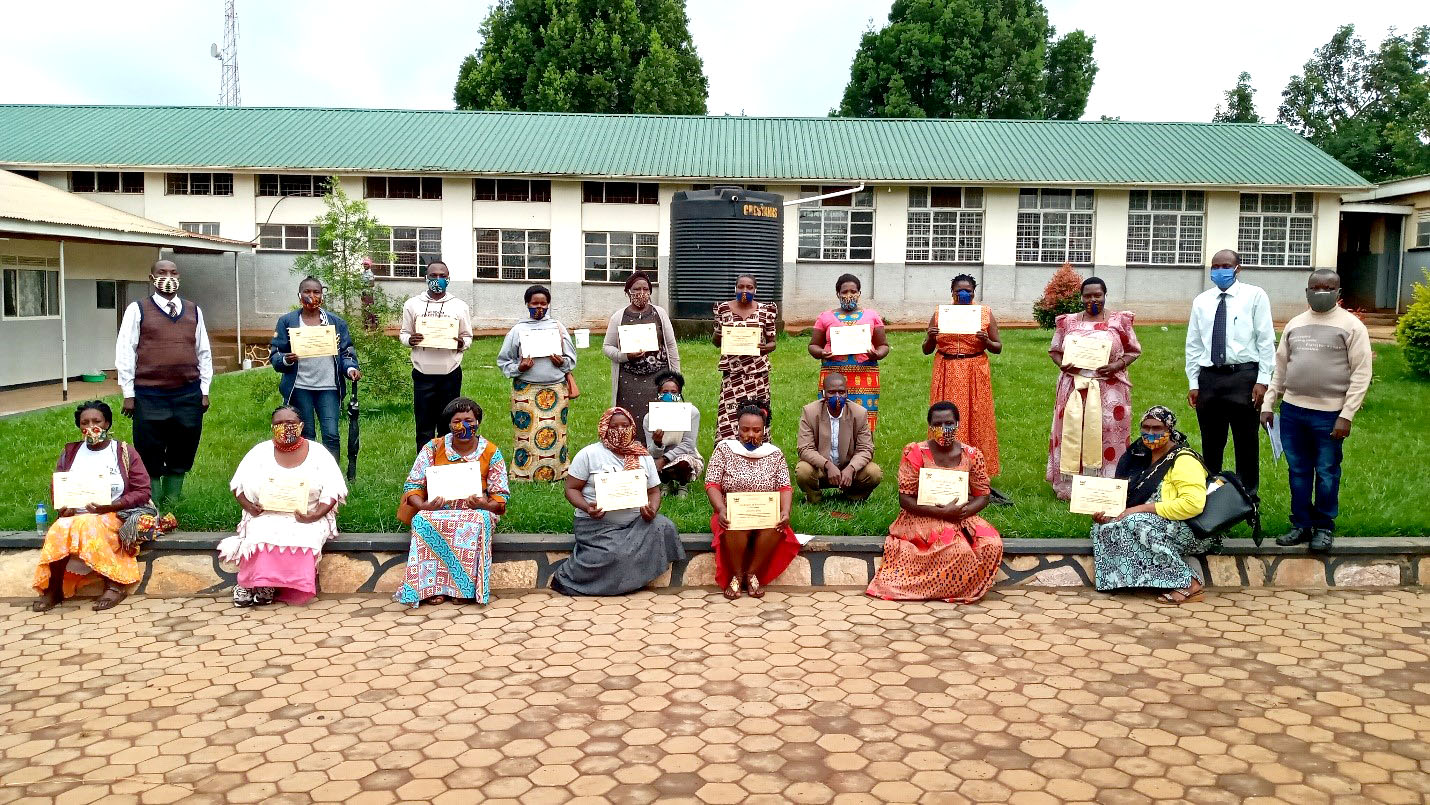
Non-communicable diseases (NCDs) have not only become increasingly common in developed countries but in developing countries as well. Over time, there has been an increasing burden of NCDs in Uganda and these have been related to a number of risk factors, some of which include physical inactivity, unhealthy diet, tobacco and alcohol use among others. Common NCDs in Ugandan communities today include cardiovascular diseases, diabetes, cancer and others.
In order to enhance the capacity of communities to prevent and control NCDs, Makerere University School of Public Health in partnership with Nottingham Trent University, Wakiso District Local Government and the Ministry of Health, with support from the Global Challenges Research Fund (GCRF) as part of the NTU QR GCRF allocations 2019/20, trained 620 community health workers (CHWs), who are commonly known as Village Health Teams (VHTs), on NCDs. The training emphasized distinguishing between communicable and non-communicable diseases, as well as causes, risk factors, prevention and control of NCDs. The training also included sharing of past experiences regarding common NCDs, pre and post assessment exercises, and a certificate awarding ceremony. VHTs trained included those from Busiro South health sub district (Bussi and Zzinga Islands, Kasanje Town council, Kajjansi Town Council, and Katabi Town Council), and Entebbe Municipality.
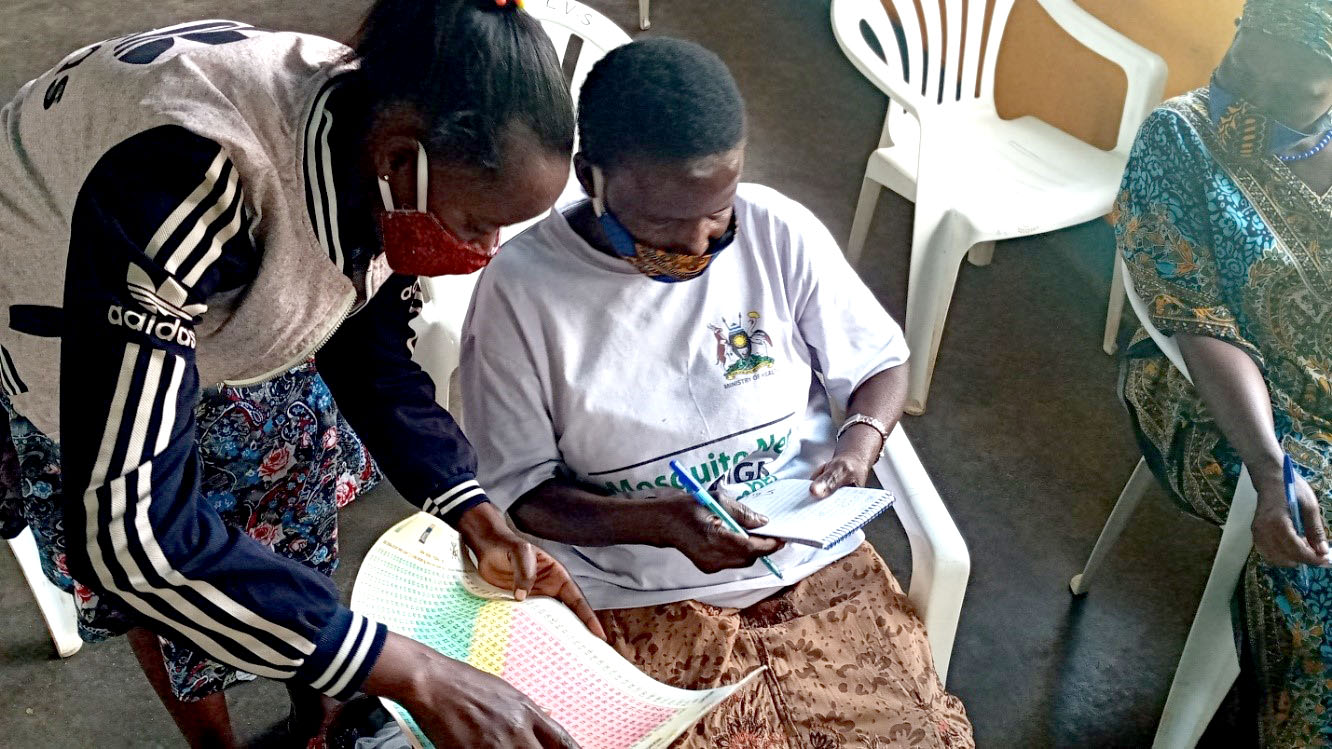

|
020, a session on prevention and control of the coronavirus disease (COVID-19) including effective hand washing was incorporated into the trainings. In order to ensure that all the Ministry of Health COVID-19 standard operating procedures (SOPs) were followed, each VHT was provided with 2 reusable masks to wear at all times during the training. Hand washing facilities, soap and alcohol-based sanitizers were also provided to ensure proper hand washing and disinfection of surfaces frequently. Temperature screening of VHTs was done on arrival, and a sitting arrangement of at least 1 meter apart was emphasized to ensure social distancing during the training. |
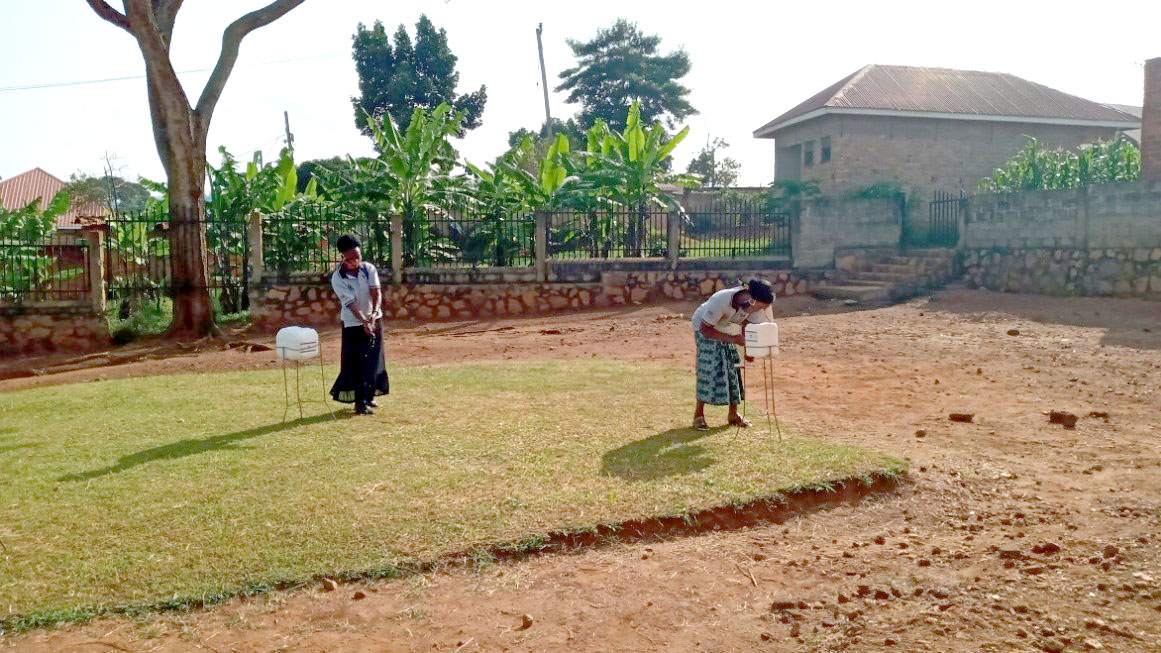
In Entebbe municipality, the Director of Entebbe Regional Referral Hospital (ERRH) Dr. Moses Muwanga facilitated the sessions on prevention and control of COVID-19 within the communities. He shared experiences of early management of the pandemic in Uganda, particularly at Entebbe hospital, and also encouraged VHTs to help enforce preventive measures within their communities.
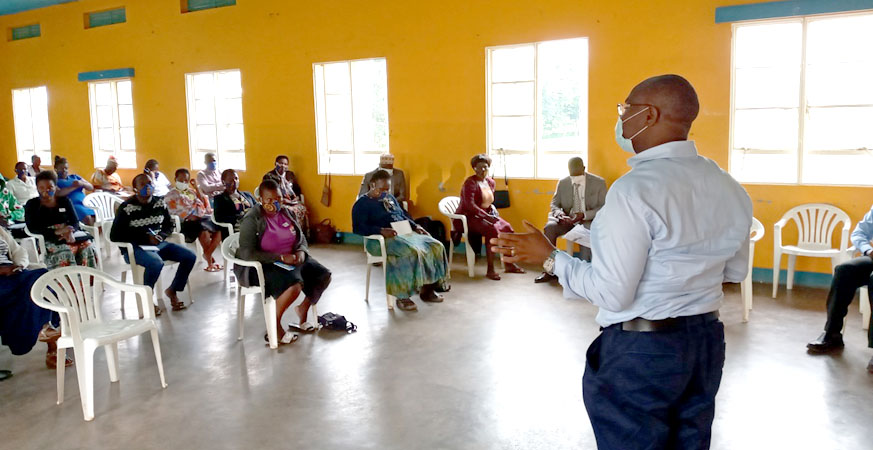
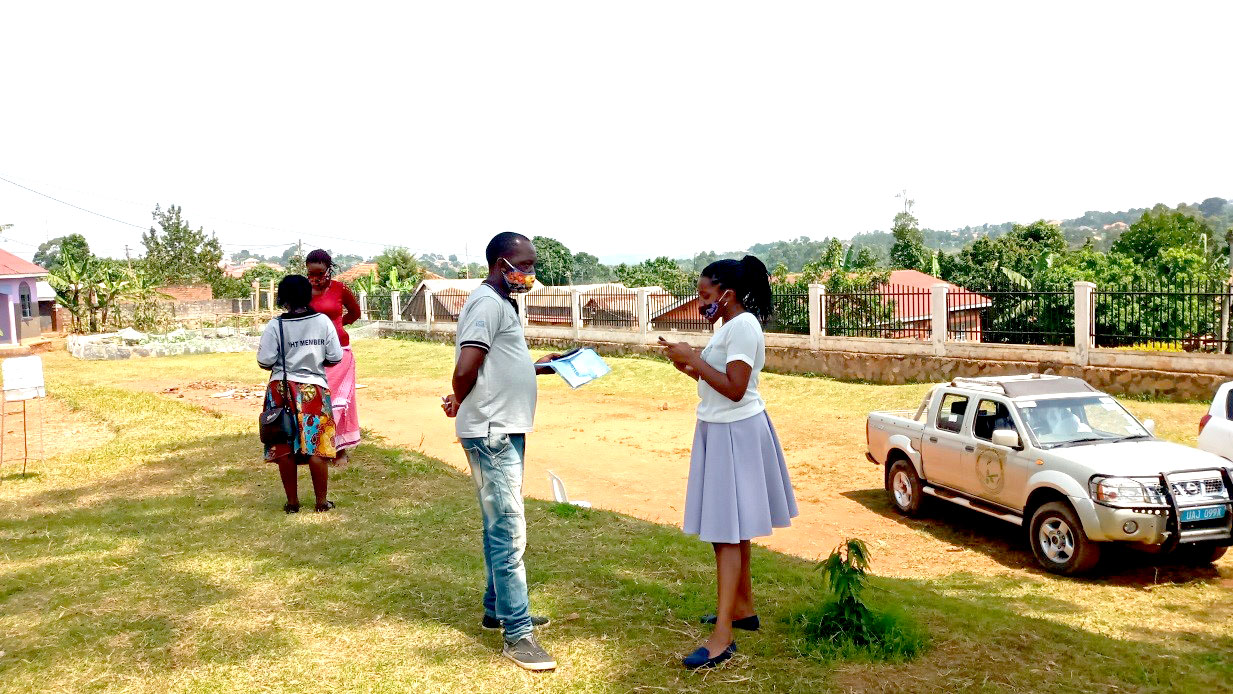
The VHTs greatly appreciated Makerere University and Nottingham Trent University for the training as it helped them discover things that they did not know, as well as corrected what they doubted or were not sure of.
“I did not know why they were measuring our weight and height before the training began. But now, I know we were going to use it to calculate BMI and now I know what the different colours on the BMI chart mean and what I can do to be healthy and of normal weight.” One of the VHTs said.
“This training has been very beneficial to me and I also believe it has been beneficial to the rest of the VHTs. All this time, I thought epilepsy was communicable and we used to run away from people undergoing seizures. Today, I have learnt that even if I touch an epileptic person, I will not get epilepsy. I have also learnt that malaria is a communicable disease.” A VHT said.
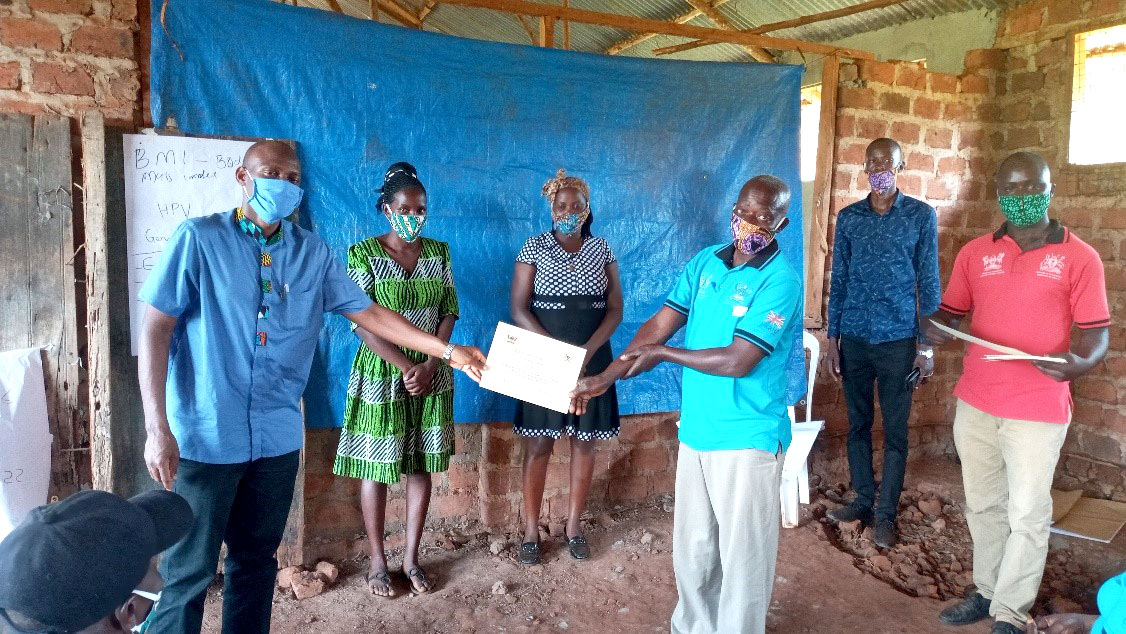
Dr. Linda Gibson, the NTU partnership and project lead, was pleased with how the project activities had been implemented despite the challenges of the COVID-19 pandemic. She was particularly excited that the CHWs that the partnership had worked with earlier, had been trained on NCDs which are on the increase in many low- and middle-income countries including Uganda. In a special way, the partnership thanked the Wakiso District Health Officer Dr. Mathias Lugoloobi and Senior District Health Educator Ms. Bonny Natukunda for the support offered during implementation of the project.
By Filimin Niyongabo, Grace Biyinzika Lubega and Joviah Gonza, Makerere University School of Public Health

